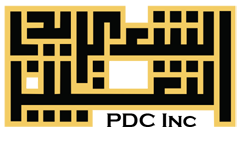
Is Tunisia Rewriting History Again?
In late 2010, Bouazizi lit the candle of the Arab Spring by setting himself on fire, giving hope to oppressed populations and despairing youth. During the past five years, the revolutionary flames were intended as an antidote against the darkness of decades of injustice, torture and corruption. However, the revolutionary flames instead burned its torch bearers and created great chaos across the region. Ironically, while jihadist bombs ignited revolutionary fervor, Ennahdha (means awakening in Arabic), the Tunisian Islamic party that originated from the Muslim Brotherhood (Ikhwan) movement, restored hope to the people.
On May 20th, 2016, Rached Ghannouchi, leader of the Ennahdha, announced in the 10th Congress of the Ennahdha Movement that the party is “leaving political Islam and entering democratic Islam” and newly labeled his party members as, “Muslim democrats”, as a substitution to “Islamist”. One can argue that Ghannouchi utilizes the sociological labeling theory to position his party as the cohabitation between political Islam and democracy. While the labeling theory is typically best applied to long-term circumstances, the recent rebranding has had popular acceptance when it affirmed the Tunisian constitution; it has been seen as putting Tunisia before Islam.
Ennahdha is next required to both define what is a “Muslim democrat,” and also implement its new vision. Yet, whether this step is a strategic move against ISIS and the increasing anti-Islamism, or a genuine rethinking of the role of Islam in society, the real challenge facing the democratic transition is not “how” democratic Islam will be implemented, but “who” are its eventual enemies.
More to the point, if Tunisia will be able to present a successful democratic socio-political model where Islam will be separated from any political activity and only existing through civil society, Gulf countries along with Egypt will first fear such success. This model would not only prove the possibility of coalition between modernity and Islam, but can be the germ of an Alternative Modern Muslim Leadership with a strong Muslim identity liberating Islam from old models in autocracies.
Photo credit to Gwenael Piaser
